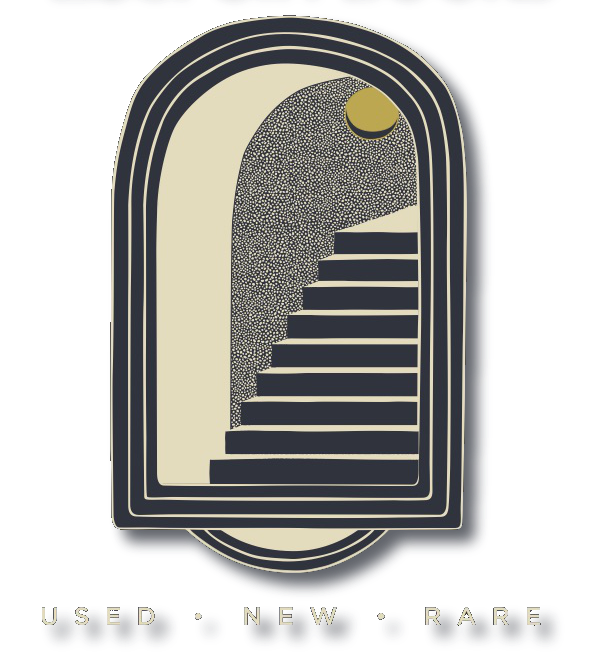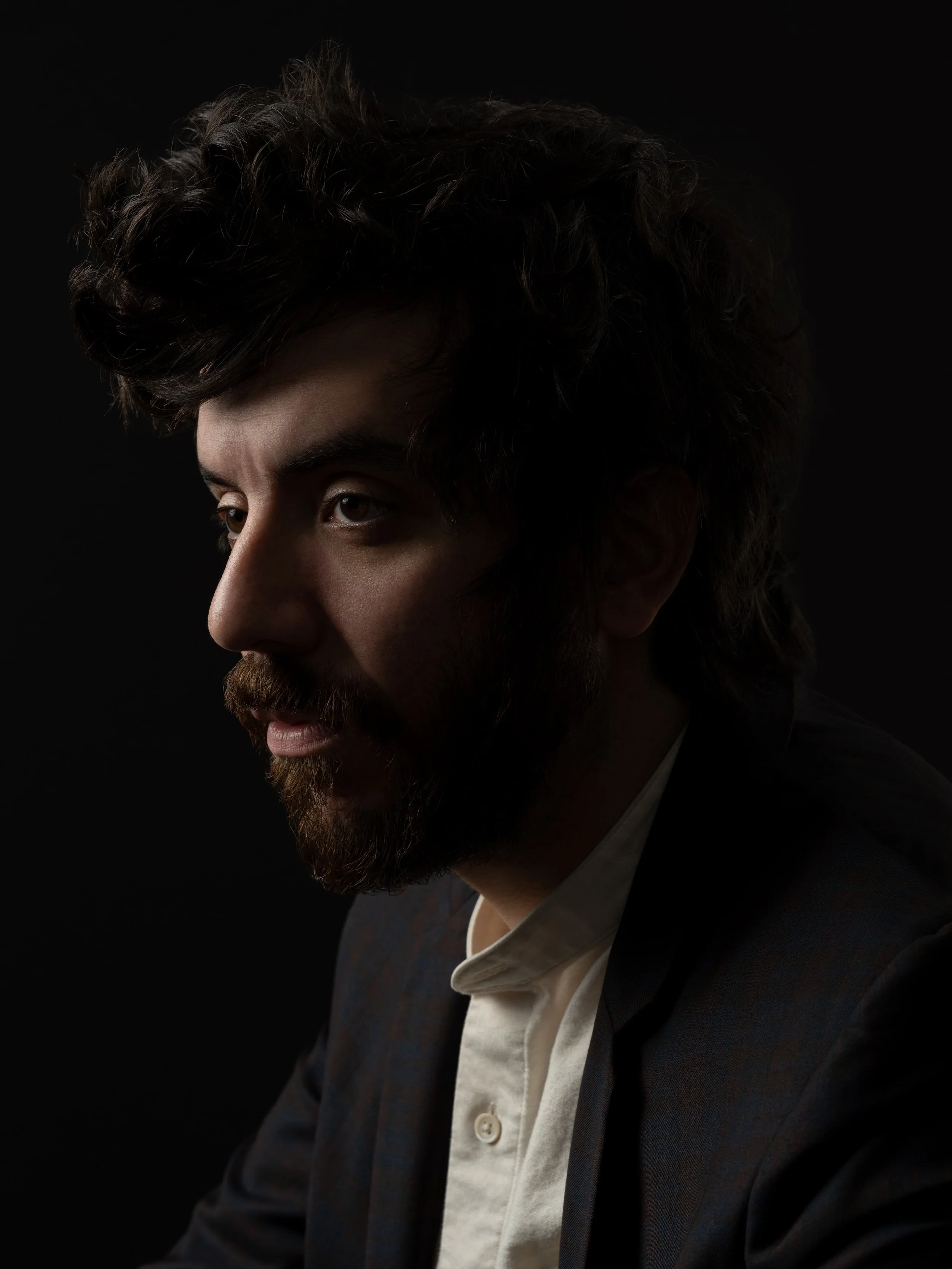When you read enough poetry, eventually, like any song lyric or scene from a movie, certain poems, certain lines, certain images will begin to stick in your brain; will begin to cycle through your thoughts like ticker tape. Perhaps, for you, it's Laura Giplin’s image of the two-headed calf, or the infamous Mary Oliver poem, “Wild Geese,” or the reminder from Gwendolyn Brooks that, yes, “you need not die today.” I could go on forever. One poet who often—by which I mean daily—soars laps in my brain for the way he sculpts language is Kaveh Akbar. His first poetry collection, Calling a Wolf a Wolf, altered the chemistry of me. I hold that book, as Akbar says in the titular poem from that collection, “near as blood.” So, naturally, it was an absolute pleasure to get the opportunity to interview Akbar ahead of his debut novel, MARTYR!, which is slated to come out on January 23rd.
In this very casual interview, we discuss the transition of venturing into novel-writing, which lines or images recur in *his* head, and more. And while the following interview, due to the date it was recorded, won’t be explicitly about the upcoming novel, I can tell you that I read an early copy of MARTYR! back in December and was utterly captured by it. Grab a copy as soon as you can. You won’t regret it.
*This interview took place on August 5th, 2023.*
JONNY: What has been moving you lately? It doesn’t have to be related to anything in the literary world at all, I know you were just playing pickup basketball in the rain, for example. It can be your dog, good meals, your recent travels, anything.
KAVEH: I’ve found myself very moved by the goodness of my friends. I know that sounds corny, but I’ve been away from home for a month and just hopping between the lives of people that I love at their home stations whether their home stations be Dublin or New York or London or Paris and just seeing the ways that the people that I love have constructed amongness across all of these various stations and getting to pop into the amongnesses they’ve and made and bask in their radiated light for these little intervals has been really restoring and instructive in showing me all the ways it can be done.
J: Oh yeah, I completely understand what you mean. Lately, as I’ve been packing up my apartment to prepare for my move to Madison, WI, I’ve been really grateful for the support my friends have given me, emotionally, but also physically in the sense of them helping me move my mattress or desk or whatever. For me, something that I am usually moved and/or activated by is my love for prose written by poets. Regular readers of this newsletter are probably fed up with me bringing it up again, but what can I say, I like what I like. It started with Hanif Abdurraqib and his essays, then Ocean Vuong with On Earth We’re Briefly Gorgeous, Fatimah Asghar’s, When We Were Sisters, Ross Gay’s, Inciting Joy— Inciting Joy was literally one of my favorite books of last year—
K: Mine too, yeah.
J: —and given that you’re also a poet who has just written their first novel, what do you love and/or find exciting about prose written by poets, be it fiction or nonfiction?
K: Well, I mean it’s old. I think the American MFA system creates the sense that one must partition their identity into these tidy little lanes. Y’know, David Shields has a quote where he says, “genre is a minimum security prison.” Which is kind of hilarious because I’m not very invested in taxonomical designations and I'm also deeply divested from carceral solutions and so that’s a twofer for me. But yeah I mean, we—and by we I mean contemporary American writers—are among the first to think these as isolated categories of contemplation and meditation. Rilke had a novel, Alice Walker had a novel. The list is as long as it is deep. So I think it’s just a natural way. I'm a writer and I'm a language artist and I know it sounds excruciatingly pompous to say ‘I am a language artist’ but that is what I believe. Language is my medium. The way that a sculptor might use marble or a dancer might use their body in space or a photographer might use light, right? Language is my medium and this is another form into which I can pour language. And, to that end, I have spent the last half decade reading two novels a week and watching a movie a day in order to try to teach myself narrative; in order to write this thing. And so I’ve gotten to sort of sit at the feet of all of those who have thought about this form and worked in this form and ultimately I’m a language artist and this is a form of language and it is my luck to get to be in conversation with all of these other titans: Borges, Rilke, Walker, and so many others.
J: This is a great segue because something I'm always impressed by is how regularly you post about stuff you’re reading, about passages or poems that stick out to you. The rate at which you read sometimes feels a little baffling, honestly. A similar kind of bafflement to the way I feel about Hanif and music. Where I'm like, Hanif knows more music and more about music than I'll ever know or, like, even consume.
K: Hahaha, yeah I feel the same way about Hanif.
J: And to that point, I guess I’m curious, for as much as you read and research and study, what are some lines from poems, films, whatever, that you find are frequently bouncing around in your head, frequently coming to the surface? What’s in your figurative pantheon of quotes or lines?
K: Ohhh man. Well, in an attempt to be more rigorously honest and spontaneous in these sort of conversations, I'll just give you the first thing that came to mind which is from Sarah Manguso’s 300 Arguments, where she’s talking about the behavior of a person who she finds to be distasteful and she says, “it is by the grace of this behavior that this person has found it possible to continue.” I think that in the long shadow of converging end times, and the terrorizing rhetoric surrounding convergent apocalypses, extending that sort of grace outward to offer the people whose behavior we find distasteful a measure of patience and tolerance and understanding that this game is rigged against all of us, and the person who’s behaving boorishly at the restaurant or says a shitty thing to a person in a Target or whatever is, y’know, carrying a burden and that is the measure in which they have found it possible to continue staying alive within this rigged game and instead of thinking myself superior to them for not having accosted that particular person in that particular way or behaved boorishly in that particular place and time, to understand that I have behaved boorishly and been an asshole to people plenty, just not at that moment. Anyway, yeah. “It is by the grace of this behavior that this person has found it possible to continue” has become something of a daily prayer, an incantation against judgment for me.
J: Wow. That’s really beautiful. And then lastly, someone asked me this question recently and I really enjoyed it so I figured I'd ask you the same: in another life, instead of writing, what do you think alternate Kaveh would want to pursue? Like, I think I would be either a drummer or a foley artist for a movie.
K: I'm interested in everything, honestly. There aren’t a lot of careers that would be totally disinteresting to me so long as there was opportunity to continue being curious within them. Yeah I don’t know I was gonna say sports writer but that’s still writing. Am I allowed to say NBA star?
J: Yeah, hahaha. You can go astronaut, you can say whatever.
K: Haha, like I’m allowed to pretend that this is a reality where I have a 40 inch vertical and I'm three inches taller, etc?
J: Absolutely.
K: Great. Love that for me, love that for me. Then yeah, an NBA power forward would be great for me.
J: Incredible, incredible. Dominate the pick up basketball game in the rain.
K: 100%. Like, again, my dream talent loadout is able to play back to the basket. Be able to body someone down in the paint, but also extend to the three point line and have a jump or two.
***
Kaveh Akbar is the author of MARTYR! You can order a copy of it here.



